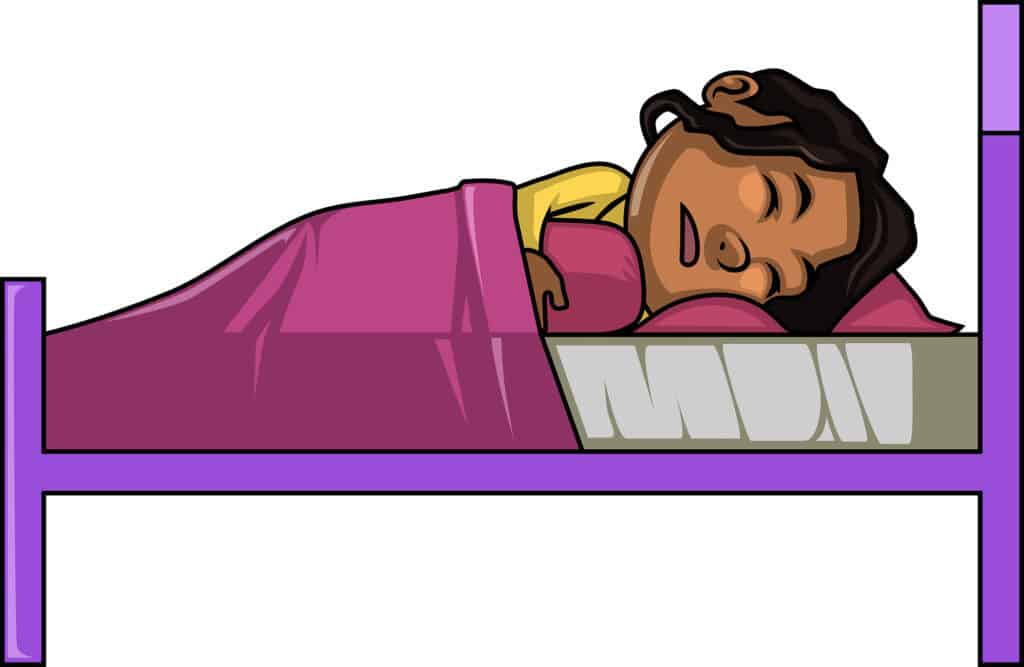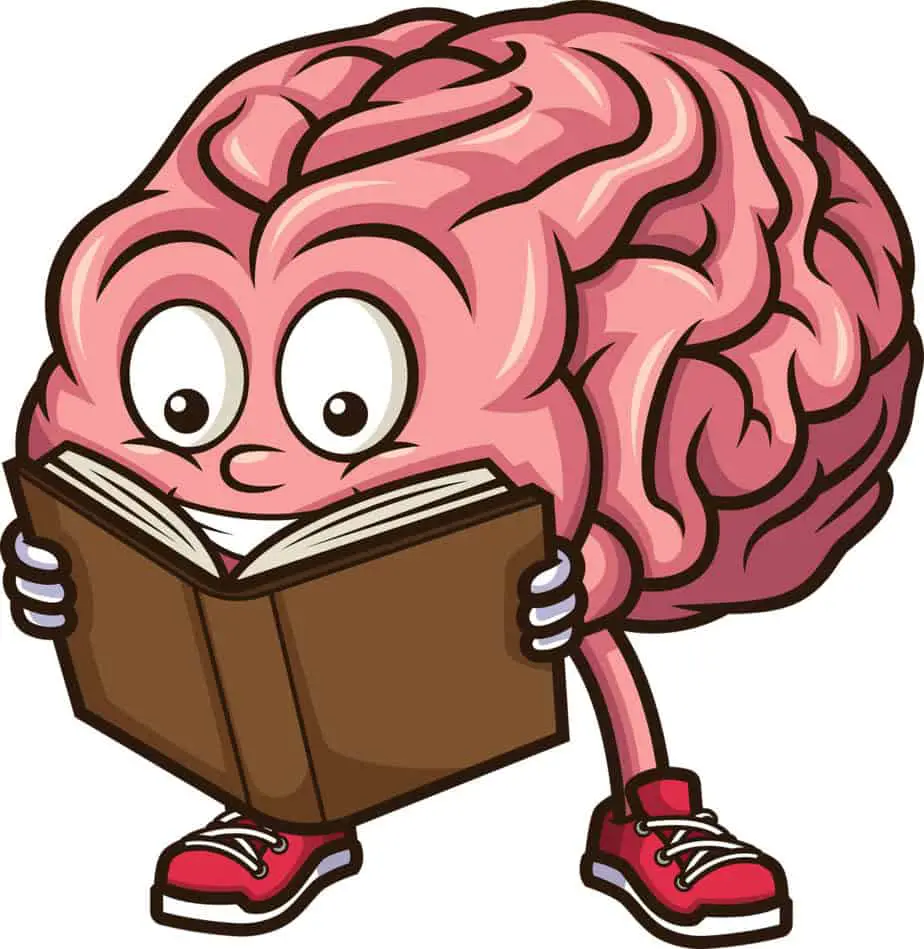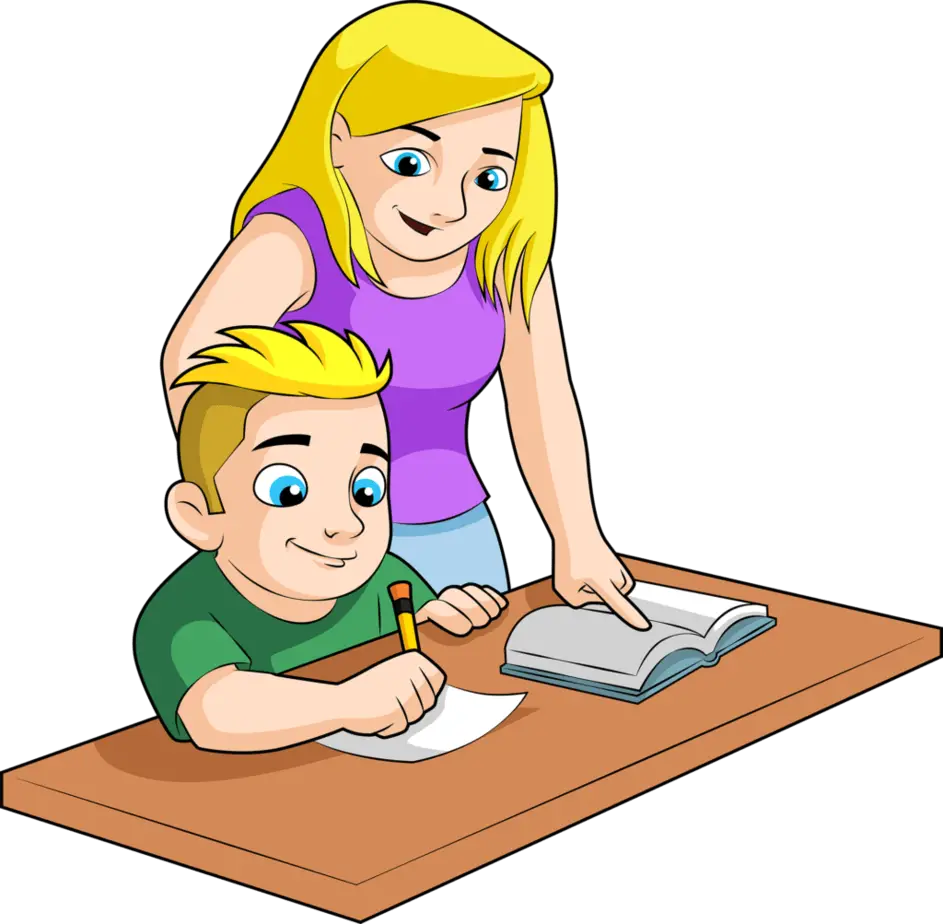
Since we spend almost a third of our lives sleeping, wouldn’t it be great if we could learn things in our sleep? Experts say it may be possible. However, other experts say you can learn better if you have a lesson before and after a nap. So, should we all start taking naps in the middle of our workday?
There is research to connect language learning and sleep. Sleep-learning, or hypnopedia, first presented in 1914, says that learning new things before sleep helps with recall the next day. Other experts say that you can learn a new language by listening to lessons as you sleep.
While you are sleeping, the brain functions differently than when we are awake. It is during that time that your brain organizes your memories. when there are no distractions from the outside world. Keep reading to learn a bit more about language learning and the sleep connection.
Contents
- 1 How Does REM Sleep and Non-REM Sleep Affect Language Learning
- 2 Studies Have Proven That Learning During Sleep Works
- 3 Things to Keep in Mind
- 4 Background to Know for Sleep Learning
- 5 Brain Waves and Learning
- 6 Another Way to Look at Sleep-learning
- 7 Verbal Cues During Sleep May Help
- 8 Priming Your Brain to Learn
- 9 It is All About the Timing
- 10 How Do They Know When the Brain is Ready?
- 11 How Do We Find the Data?
- 12 Other Theories About Language Learning and Sleep
- 13 Sleep Helps the Brain Retain Word Recognition
- 14 It Works for Adults Too
- 15 We All Use Active System Consolidation
- 16 What Does the Hippocampus Do?
- 17 Final Talking Point on Language Learning and the Sleep Connection
How Does REM Sleep and Non-REM Sleep Affect Language Learning
During our sleep cycles, there is a period called REM (Rapid Eye Movement) sleep when we dream, keeping our brain busy from outside stimuli. All of the information you learn during the day is recalled and organized during REM sleep. But the rest of the time, during non-REM sleep, our brains are not busy and this period of time leaves us open to learn things more efficiently.
This can be utilized to learn a language better and retain what was learned during the day. Our brains can process our daytime efforts overnight and make our efforts more effective. As well, during our more peaceful sleep periods our brains can absorb small amounts of input through sounds.
Studies Have Proven That Learning During Sleep Works
In one study, a group of participants was asked to read and remember as many phrases of a new language as they could. Then, half of the participants slept, while the other half stayed awake. During sleep, these participants listened to the same phrases they listened to before.
According to the study, when they woke, those who had slept while listening to the new language were able to remember the phrases better than those who did not.
Some questioned if that was because the participants who slept were better rested than the other half? Or was their brain actually listening to the new language while they slept?
These sorts of studies gave rise to many claims, some outlandish and some more reasoned. Many sold “Learn to Fluency While You Sleep” courses while others touted audio programs as supplemental to language learning. Like with most things, there will be those that are honest and those that will try to exploit most everything.
Learning Before and Hearing During Sleep Works Better
Many more similar studies have been done since then, however. And it has been found over and over again that if you study a language just before sleep and then listen to it while you sleep, your ability to retain that information is much better. So, technically, sleep-learning is possible as long as you do a bit of studying beforehand.

With this theory, a more reasoned and frankly legitimate practice was advocated. Instead of claiming that an entire language could be learned while sleeping, it was more accurately claimed that during the times when the brain is falling asleep, it is accessible for review of learned information.
The program I would recommend for learning a language during your waking time has a free trial at these links… Spanish, English, German, French, and Italian.
Using Pink Noise to Get to Slow Wave Sleep
To more deeply delve into the subject of sleep-learning, other studies showed that listening to the new language along with pink noise during your first few hours of sleep increases your language learning even more. Pink noise is the cacophony of sounds we hear in the world around us, like wind blowing through the trees or the sound of birds singing.
Here’s an example of a popular pink noise device on Amazon.
Using pink noise is supposed to get our brain into slow-wave sleep. This is the deepest part of non-REM sleep you can reach. It is supposed to be the best time for your brain to absorb new things, like that new language you have been wanting to learn.
For those with sleeping problems these sounds can also sooth your mind which can help not only with retaining language learning information, but can help you get a more restful overall sleep. This is turn can make you more ready when you wake to learn your new language.
Things to Keep in Mind
Pink noise is also good at helping your brain store those memories where they belong. If you want to try this idea of sleep-learning, there are a few things that can help you out. For example:
- Do not expect miracles. You cannot just listen to a new language and wake up speaking that new language fluently.
- Learn a few new words and sentences every day so the brain can store them at night while you sleep.
- Plan your recording of the new language to play during your first three hours of sleep when your brain is in non-REM sleep periods.
- Play some kind of pink noise while you sleep. They have recordings you can use such as those found on Amazon, or you can make your own.
Learning a New Language Does Not Happen Overnight
Learning a new language can be difficult for some, and it definitely takes time. And certain other languages are harder than others. For example, it has been said that on average, it takes 1,500 hours to learn to speak Russian conversationally. And it takes about 2,200 dedicated hours to learn Mandarin Chinese.
Learning New Languages is Hard
Because learning a different language requires many different layers of learning, mastering a new language can be difficult. First, your brain has to recognize the sounds it is hearing. Then, you have to learn the vocabulary of that language. So, how can we do all of this learning while we are asleep? Read on to hear what proponents have to suggest.
If you would like to read about the hardest languages to learn and how English fits into the mix for those wanting to learn it, read my article here.
Background to Know for Sleep Learning
Because our brains are constantly processing new (and old) information, we are always learning. And that includes while we are sleeping. So why not spend that time learning a new language? You cannot say it is too time-consuming because you are “wasting time” doing nothing but sleeping. Why not take advantage of that time?
If only it were that simple. But there are different ways that people learn. We are not all the same, of course, so we do not all learn the same. Some people are visual learners, while others are better at hands-on learning. Let’s go over the different kinds of learning.
Classical Conditioning
The most common way that people learn is classical conditioning. This was discovered by Ivan Pavlov, a Russian physiologist, by experimenting with dogs. You may have heard of Pavlov’s Dog experiment. This research was done by teaching the dogs to expect food when they heard a bell ring by ringing a bell right before feeding them.

Eventually, the dogs were already drooling when they heard that bell. This conditioning is a kind of learning that automatically and naturally triggers a response in our brain when we pair something with another thing. When the dogs associated the bell with feeding time, they automatically expected to be fed when they heard a bell.
This means whatever we choose to do in language learning, we have to train our brain what to expect. Once it has a routine understood, it is easier to learn during regular consistent intervals. The same times of day, in the same way etc. can speed up the process and reduce the time to fluency.
Operant Conditioning
When you learn by the consequences of your own actions, that is considered to be operant conditioning. A man named B. F. Skinner, who was a behaviorist, found that classical conditioning was not the answer for all types of learning. He suggested that punishment and positive reinforcement were helpful in other styles of learning.
When something happens right after a certain behavior or act, often enough, our brains realize that when we do that thing, that consequence will happen again. For example, if you were to lose money for being late to work, you would stop being late for work. If you get rewarded for doing a good job in that same vein, you would be more apt to do a good job.
Rewarding yourself after waking if the information can be recalled is an example of this format. It does not work for everyone the same, but for those who find it helpful, it could make a significant difference in their language learning journey.
Observation
Another way that we learn is through observing others. Dr. Albert Bandura, a psychologist, found that there were other ways that people learned that had nothing to do with classical or operant conditioning. This is a more complicated way of learning that involves watching what happens to others when they do certain things.
For instance, if a child sees a parent kiss the other parent goodbye, that child may imitate this action themselves. This kind of learning is also referred to as modeling or shaping. Observing how parents and siblings behave plays a big part in how a child learns to behave.
You may be wondering what all this has to do with sleep-learning. We do not use any of these learning types while we sleep, so how can we possibly learn when we are sleeping? The answer is actually simple: because our brain does not sleep, we are always learning.
Brain Waves and Learning
By using electroencephalography (EEG) to monitor brain waves during sleep, researchers were able to see when the brain is active and learning new things. This is true even while we are asleep. More importantly, researchers were able to find that theta brain waves appeared while the brain was “listening” to other languages.
Theta waves are important in memory and learning and are commonly found when we are awake. During these slower brain waves, the brain’s frequency of oscillations is only in the four to seven Hz range. Finding them during sleep is a big deal, then, to prove that we can learn while we are sleeping.
I can’t help but mention here that the whole ‘While You Were Sleeping’ talk reminds me of one of my favorite Christmas movies. You can get your copy of ‘While You Were Sleeping’ here on Amazon. Now that I went down that rabbit hole… back to the topic at hand.
Another Way to Look at Sleep-learning
The other way that scientists believe that sleep is related to learning is by learning a new language before and after sleep. This can be before a nap or before you go to sleep for the night. But either way, experts agree that sleep is essential to learning and remembering things.

Your brain is forming and organizing those memories you make during the day, moving them from the hippocampus to other areas of the brain as a sort of storage for later. Memories are formed in the hippocampus during the day while we are awake. Then at night, our brain takes those memories and puts them in a spot you can get to when you need them.
Verbal Cues During Sleep May Help
According to recent studies, if you spent about an hour learning words and phrases in a new language before sleeping, verbal cues during sleep would help you remember them better. In this study, after learning new words, the participants would listen to verbal cues on some of these words but not others. The words that were cued during sleep were retained more often than the others.
Priming Your Brain to Learn
The key, according to Discover Magazine, is to prime your brain before you sleep. This gets your brain ready to learn. One of the studies did just that by using a fake language with made-up words and meanings. Their goal was to determine if the words would leave a trace in the participants’ memories at an unconscious level.
This time, the participants were listening to these words and translations while they slept without their knowledge. When they woke, the participants were given the same words again and asked for the meanings. According to the results, those who listened to the words and meanings while they slept got 10% more of the meanings correct.
This may not seem like a lot, but when you consider that to speak a language fluently a student has to commit to memory between 10,000 to 20,000 words, this can make a difference. That could mean 1,000 to 2,000 more words simply by doing something you do every night anyway.
It is All About the Timing
Because the participants in the study were listening to the words and descriptions during slow-wave sleep, the brain was able to form a memory trace to help store that memory, even while sleeping. But it has to be done at the right time during sleep cycles.
During slow-wave sleep, your brain goes between down states and up states every half of a second. During those up states, your brain is primed for learning because it is interconnected and active. So, the more often participants were able to listen to the words and meanings during upcycles, the better the memory retention.
With this in mind, it is more important that shorter lists of known and studied words and phrases are used instead of huge lists of previously unknown information. This way the upcycles can be targeted with specific information more often.
How Do They Know When the Brain is Ready?
To see when your brain is in a down cycle or upcycle, the researchers use an fMRI, which stands for functional magnetic resonance imaging. This machine can measure brain activity by seeing the blood flow changes to each area of the brain. When you use one area of the brain, your blood flow to that area increases.
During sleep, the brain is making new connections between your neurons, and as long as you stay asleep, you are able to make more connections. The more connections your brain makes, the more memories you retain. However, you have to be able to find those memories once you are awake.
All of this points to coordinating what you listen to when you sleep to what you study during the day. This becomes a more laser focused approach than a shotgun, hoping for the best effort.
How Do We Find the Data?
Finding the memories when you wake up may not be as easy as the researchers thought. Although the participants in these studies were able to retain much of the information they were given during sleep, they had no idea that they learned anything during that time.
In order to find these memories, the researchers had to ask the correct questions. Although the participants did not know they knew the information, their brain was able to make that connection subconsciously when they were asked to recall it.
Other Theories About Language Learning and Sleep
The other theory of learning the language before sleeping is also being studied more now. In the studies, the researchers are giving lessons to the participants 20 minutes before sleep. Then they are played the same lessons during non-REM sleep. After they wake, they are taught the same lesson again. In these studies, the results were even better.

In a different study done with children, the participants were taught new words before their nap time. Those who napped after the learning session were able to retain the new words better than those who did not. However, the children were not given any lessons during sleep, so the whole idea was that sleeping gave the brain time to retain those words.
Sleep Helps the Brain Retain Word Recognition
According to many researchers, sleep gives children’s brains the time to develop and connect new neurons to retain what they are taught before sleep. The best new word retention was shown to happen if the child took a nap soon after learning those words.
Another study reinforced these hypotheses. Preschoolers were read stories with new words right before naptime and were tested about three hours after they woke. Or, in the case of those who did not nap, they were tested three hours after the lesson. The children who napped had a much better word recognition than those who did not.
It Works for Adults Too
Even though the researchers are still unclear as to how it works exactly, they have determined that sleep-related learning is also beneficial for adults as well. Even when the participants were not listening to lessons while they slept, they retained more information that they learned if they took a “power nap” after learning a new skill.
We All Use Active System Consolidation
A theory the scientists call Active System Consolidation (ASC) helps explain the reason for memory retention during sleep. With this theory, the hippocampal and cortical neurons that are used to learn when you are awake are reactivated when you get to that period of slow-wave or non-REM sleep.
What Does the Hippocampus Do?

The hippocampus is a temporary storage hold for your memories. It helps to strengthen the memories from what you have learned. During sleep, the memories are retraced, especially during slow-wave sleep. They are eventually moved to a storage area of your brain for future use. You may not even know that you know something that you learned during the day until that memory is reactivated.
For example, with language learning, if you are in France for a period of time and constantly hear new words and find out what they mean, you will store those memories for later use. The hippocampus retains this information until you get to slow-wave sleep, and then the information is stored safely away for future usage.
Final Talking Point on Language Learning and the Sleep Connection
It is difficult to know which of these theories are true. But in each of these cases, sleeping after learning is beneficial to remembering what you learned. And this works even if you do not listen to lessons during sleep.
Although listening to new languages while you sleep could not possibly hurt anything, so why not try it anyway? Just make sure that the information you are listening to is from previously studied material and you could be shaving of nearly 10% of the time it takes you to reach fluency.
